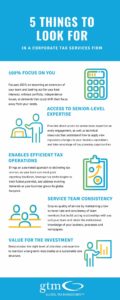May 2021 marked the release of the Department of Treasury’s Fiscal Year 2022 budget, as well as a detailed explanation (known as the Green Book) of the Biden Administration’s proposed American Jobs Plan and American Families Plan. As expected, the international proposals include significant changes to the global intangible low-taxed income (GILTI) provisions of section 951A.
The effect of the proposed changes combined with the more unpleasant aspects of GILTI in its current state could result in some very unfavorable consequences for taxpayers. If the first iteration of GILTI had U.S. multinationals kicking the tires on converting tested income to subpart F, the proposed changes, if enacted, should have them revisiting their analyses. This article examines how subpart F can be beneficial to U.S. multinationals when considered against the potential future state of the GILTI regime.
In Reconsidering Subpart F in Light of the Green Book GILTI Proposal, originally published in the latest issue of Tax Notes International, Brian Abbey, GTM’s Managing Director of International Tax Services, examines how subpart F can be beneficial to U.S. multinational companies when considered against the potential future state of the GILTI regime.



